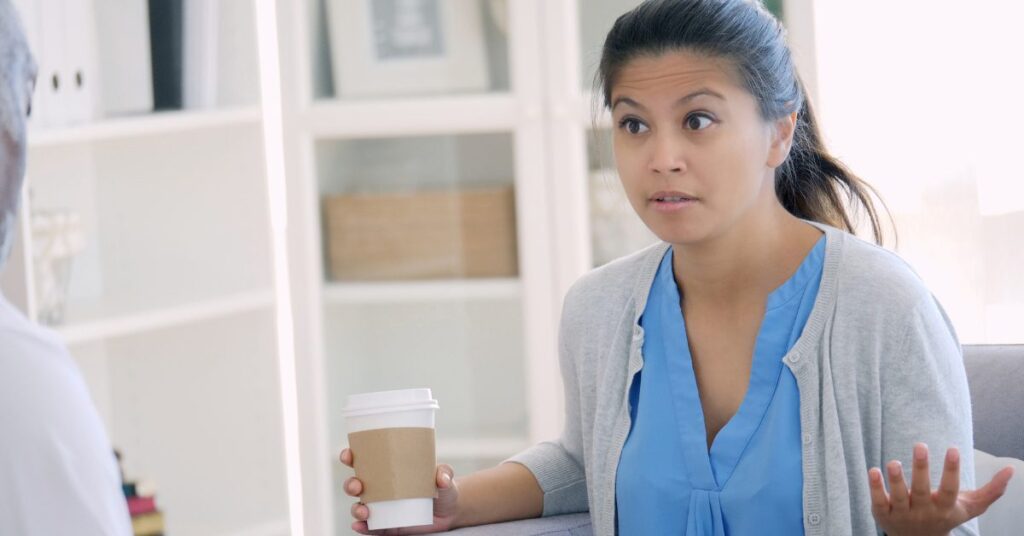Does Suboxone Make You Nod?
Suboxone is considered a partial agonist opioid drug, it will cause sedation and euphoria. Does this mean it can cause someone to ‘nod-off?’
Suboxone was developed to treat opioid addictions or opioid use disorder (OUD). Suboxone is a medication that has dramatically helped improve the status of the current opioid epidemic. Suboxone is also a medication-assisted treatment (MAT) and is almost exclusively relied on to help people addicted to opioids.
This includes heroin, Fentanyl, morphine, opium, or prescription painkillers (Oxycontin, Vicodin, Dilaudid, etc.). Additionally, an opioid use disorder can also refer to someone abusing Suboxone. Still, Suboxone is the preferred medication to help someone get free from their addiction to opioids.

How Does Suboxone Work?
The active ingredients in Suboxone are buprenorphine and naloxone. These two ingredients are combined to minimize and reverse opioid withdrawal symptoms and reduce cravings for opioids. The critical factor that allows a doctor to prescribe Suboxone is whether or not the individual has already begun to show withdrawal symptoms. When a patient has not started to experience withdrawals or detox symptoms, Suboxone can initiate them, which is very uncomfortable.
When this happens, it is called precipitated withdrawal syndrome. However, most patients who receive Suboxone are already experiencing withdrawal because they have not used their opioid drug in the last 12 hours. Therefore, the ideal time to begin Suboxone is 24 hours after the previous use of an opioid and three days from the last use of methadone.
The most common dosing of buprenorphine is 8-24 mg daily. Patients need to be insufficient opioid withdrawal for induction, typically 12-24 hours after last use. (NIH)
What is The Legal Information on Suboxone?
Suboxone is a Schedule III controlled substance in the United States because it has the potential for abuse and addiction. Suboxone is distributed legally by doctors certified by the Department of Health and Human Services. It is available as tablets and dissolvable oral films. The doses of Suboxone are 2 mg buprenorphine / 0.5 mg naloxone, and 4 mg buprenorphine / 1 mg naloxone, and 8 mg buprenorphine / 2 mg naloxone. Most persons abusing Suboxone prefer the most potent dose or 8 mg. Millions of people have ended their addiction to heroin or other powerful opioids from taking Suboxone.
Studies show that people with opioid dependence who follow detoxification with no medication are very likely to return to drug use. (NIH)
What Do The Experts Say About Suboxone?
Individuals who use opioids every day are prescribed Suboxone and are much more likely to achieve long-term recovery than those who are not. In the opinion of the Substance Abuse and Mental Health Services Administration, Suboxone is most effective when combined with other opioid addiction treatment methods.
Buprenorphine is used in medication-assisted treatment (MAT) to treat Opioid Use Disorder (OUD), in combination with counseling and behavioral therapies, provide a whole-patient approach to the treatment of opioid dependency. When taken as prescribed, buprenorphine is safe and effective. Buprenorphine is the first medication to treat opioid dependency that is permitted to be prescribed or dispensed in physician offices and by qualified U.S. physicians and mid-level practitioners with an X-license from the DEA can offer buprenorphine for opioid dependency in various settings. (SAMHSA)
Suboxone: Does It Make You Nod?
Since Suboxone is considered a partial agonist opioid drug, it will cause sedation and euphoria and cause a person to ‘nod-off.’ Nodding is behavior very common to heroin and other opioid addicts. The effects of heroin, Fentanyl, or prescription painkillers make a person very sleepy and lethargic.
Many people on Suboxone will occasionally experience a ‘nod.’ However, if someone is always ‘nodding,’ they are using too much Suboxone. As referenced before, Suboxone can be abused for its opioid effects. Suboxone is considered a narcotic, and a person can get addicted to it the same way that they would to heroin or other opioids. Still, the benefits of Suboxone far outweigh the risks, and it has reduced opioid addiction rates dramatically.
On-Call Treatment Provides MAT and Suboxone Upon Admission
To recover fully from opioid addiction, you must enter an opioid use disorder detox program followed by rehab. Our addiction recovery programs for heroin, Fentanyl, and prescription pain killers are specifically designed to help patients overcome their addictions’ relying on behavioral therapy methods, medication-assisted treatments, and in-depth counseling and emotional support. In addition, our programs help patients learn how to remain drug-free and achieve peace by utilizing evidence-based psychotherapy, one-on-one counseling, and holistic therapy offered at Evoke Waltham.


